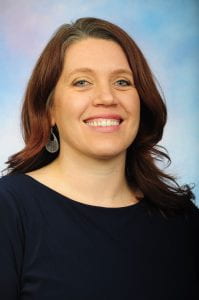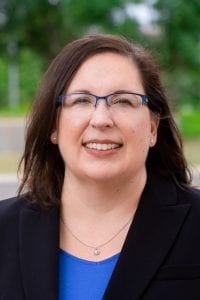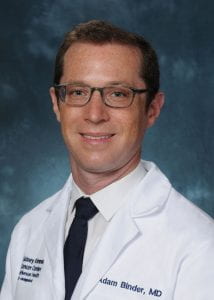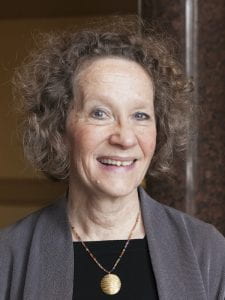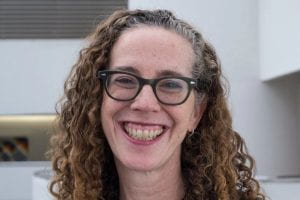Past Seminars
BLANK
Persistent Poverty, Financial Hardship, Social Risks, and Quality of Life among Black Cancer Survivors: Results from the Detroit Research on Cancer Survivors (ROCS) Cohort
Theresa Hastert PhD, MPP
Associate Professor in the Department of Oncology at Wayne State Univeristy School of Medicine
This seminar described the relationships between persistent poverty area residence and individual financial hardship, social risks, and quality of life among Black cancer survivors in metropolitan Detroit using data from the population-based Detroit Research on Cancer Survivors (ROCS) cohort of Black cancer survivors.
Financial Hardship and Emotional Well-Being Among Older Adults Living With(out) Alzheimer's Disease: Role of Internal Coping Resources, Race/Ethnicity, and Relationship Trajectories
Shinae L. Choi, PhD
Associate Professor in the Department of Consumer Sciences at The University of Alabama.
Dr. Choi shared her investigations on the impacts of financial hardship and diagnosis of Alzheimer’s disease or related dementias on emotional well-being, whether internal coping resources mitigate emotional distress, and how these impacts differ by race/ethnicity among U.S. older adults.
Debt and Health: Concepts, Theories, and Findings
Patricia Drentea, PhD
Professor of Sociology at The University of Alabama at Birmingham
Dr. Patricia Drentea reviewed different ways of examining the concept of debt, and relate ittheoretically to relative deprivation, consumption,medical financial hardship, and cumulatived is advantage. She also lead a discussion regarding her previous research in the area of debtand health.
Improving the Patient Experience and Reducing Care Burden Through a Tailored Approach to Treatment of Cancer
Adam Binder, MD
Associate Professor in the Department of Oncology at the Sidney Kimmel Cancer Center, Thomas Jefferson University
Dr. Binder shared various care delivery models currently being explored that will provide patients with more choices in how, where and when they receive care for their cancer. These programs are designed to demonstrate the need for flexibility within our healthcare system in order to improve the patient experience, make their care more seamless, efficient and reduce the burden they and their caretakers face.
Cultivating Change Agents to Address Costs of Care
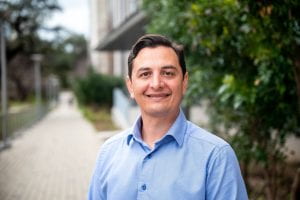
Chris Moriates, MD
Executive Director for Costs of Care. Assistant Dean for Healthcare Value and an Associate Professor in the Department of Internal Medicine at the Dell Medical School at The University of Texas at Austin
Exploring Synergies between the EMOT-ECON Network and the MIDUS (Midlife in the U.S.) National Study: Angles on Well-Being, Financial Strain, and Health
Dr. Carol Ryff, University of Wisconsin-Madison
Dr. Carol Ryff, Professor in the Department of Psychology at the University of Wisconsin-Madison, presented on the rich assessments of emotion and psychological well-being within the MIDUS national study of Americans. Dr. Ryff discussed how the MIDUS data can be used to examine the impact of economic burden of disease on well-being.
For more information about MIDUS visit http://www.midus.wisc.edu/
Screening and Addressing Social Needs within Oncology
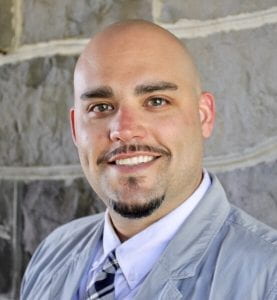
Dr. Mateo Banegas, University of California, San Diego
Dr. Mateo Banegas, Associate Professor at the University of California, San Diego, discussed a health system’s approach to addressing social and economic needs among individuals with cancer, and challenges and opportunities of social need screening and referral programs to improve patients’ well-being.
Selected Publications:
Stress, Coping, Meaning, and Emotional Well-Being in Cancer Survivors
Dr. Crystal Park, University of Connecticut
Cancer survivorship entails many stresses and challenges. This presentation described the ways that survivors cope with these stresses and how different types of coping relate to their long-term emotional well-being.
Research on economic burden of disease and emotional well-being: where do we go next?
Dr. Maria Pisu, Dr. Michelle Martin, and Dr. Margaret Liang, EMOT-ECON Team
Erin Bradshaw and Dr. Minal Patel, EMOT-ECON Steering Committee
As presented at the Society of Behavioral Medicine’s 2022 conference, members of EMOT-ECON discussed current research on emotional well-being and economic burden of disease and the formulation of the Network.
How do we measure emotional well-being? It depends on who you ask
Dr. Jessica Koslouski, University of Connecticut
Dr. Koslouski shared the results of a recent scoping “review of reviews” of emotional well-being measures. The talk highlighted complexities in the field of measuring emotional well-being, as well as the imprecise boundaries between emotional well-being and related construct
Financial Hardship among Cancer Survivors in the United States
Dr. Robin Yabroff, American Cancer Society
Dr. Yabroff is the Scientific Vice President of Health Services Research at the American Cancer Society. Her research focuses on financial hardship, patterns and costs of cancer care, and health insurance coverage. Dr. Yabroff provided an overview of medical financial hardship and discussed implications for emotional well-being.
Do You Need Data? An Introduction to the Health and Retirement Study (HRS)
Dr. Jacqui Smith, University of Michigan
Dr. Smith is a Professor of Psychology and a Research Professor in the Survey Research Center and the Research Center for Group Dynamics in the Institute for Social Research at the University of Michigan. She is a Co-PI of the NIA-funded Health and Retirement Study (HRS), leading the Psychosocial Aging and Life History components of this study.

